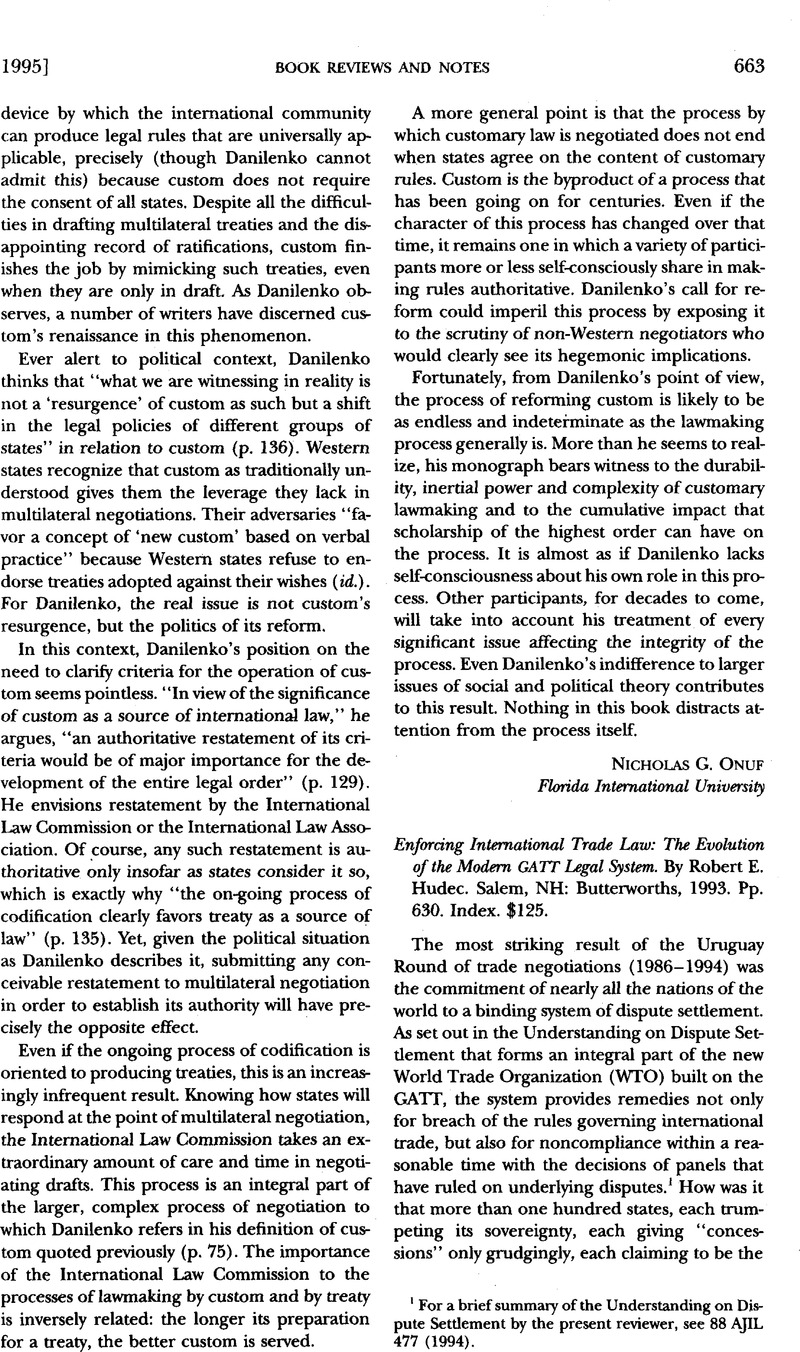No CrossRef data available.
Published online by Cambridge University Press: 27 February 2017

1 For a brief summary of the Understanding on Dispute Settlement by the present reviewer, see 88 AJIL 477 (1994).
2 Section 301 of the Trade Act of 1974 as amended, 19 U.S.C. §2411; or, to be more precise, §§301–310, 19 U.S.C. §§2411–2420 (1988), plus Exec. Order No. 12,981, 30 Weekly Comp. Pres. Doc. 422 (Mar. 3, 1994.)
3 In a sense, the book under review is a sequel to Hudec, The GATT Legal System and World Trade Diplomacy, first published in 1975 and revised in 1990. It is not necessary, however, to read the earlier volume to appreciate the later one.
4 Louis Henkin, How Nations Behave: Law and Foreign Policy (2d ed. 1979).
5 For a collection of decisions by GATT panels, see Pierre Pescatore et al., GATT/WTO Dispute Handbook (1991–1995).
6 See Jagdish Bhagwati, The World Trading System at Risk (ch. 4), in Aggressive Unilateralism: America’s 301 Trade Policy and the World Trading System (Jagdish Bhagwati & Hugh T. Patrick eds., 1990).
7 A detailed account, without the many years of aftermath, appeared in this Journal. See John H. Jackson, The Jurisprudence of International Trade: The DISC Case in GATT, 72 AJIL 747 (1978).